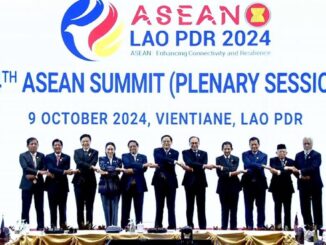
FILIPINOS still in war-troubled Lebanon were urged to take advantage of the Philippine government’s repatriation efforts amid the escalating conflict between Hezbollah and Israeli forces.
Department of Migrant Workers (DMW) Undersecretary for Foreign Employment and Welfare Services Felicitas Bay, during a public forum over the weekend, said that initiatives for repatriation are ongoing.
“Again, this is a call for all Filipinos, not only OFWs (overseas Filipino workers) — but for Filipinos in Lebanon to heed the call of [the] government for voluntary repatriation,” Bay said. “We are asking them not to wait until the situation gets worse.”
“The government is doing all it can — we are in active coordination with the Department of Foreign Affairs. They are the lead government agency when it comes to situations like this. And the DMW is working side by side with the DFA in helping overseas Filipinos … ensuring their safety … until they come back to our country,” she added.
There are over 11,000 Filipinos with their dependents in Lebanon, Bay said.
Registration is ongoing for those who wish to return home. The list of those who want to be repatriated is about 1,100 so far.
However, some changed their minds about being repatriated at the last minute.
Fifteen OFWs are slated to be brought back to the country on October 3.
In October last year, the DFA raised the alert to 3 in Lebanon, which also prompted the agency to halt the processing of the Balik-Manggagawa application and the return of contract workers to the Middle Eastern country.
The DFA said the Philippine government is considering placing Lebanon under Alert Level 4 if the situation worsens.
“That is being assessed by the DFA … So, if the DFA, through the recommendation or assessment of our embassy, would raise the alert to Level 4 or mandatory evacuation, then we will comply. We at the DMW are ready to support and assist all Filipinos who would undergo or who would opt for mandatory evacuation. Just to be very clear, it’s Alert Level 3 right now. So, it’s voluntary repatriation,” Bay said.





Be the first to comment